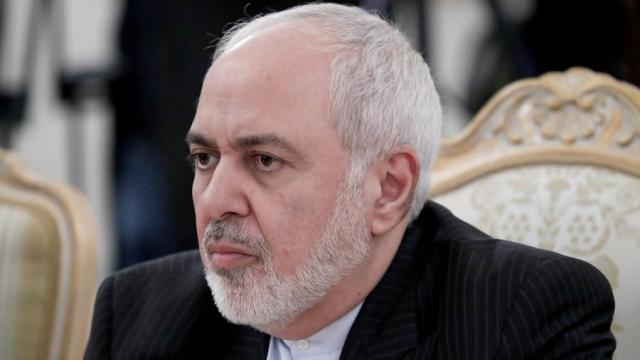Dubai. December 21. INTERFAX-European countries-Britain, Germany, France-have the last opportunity to save the Joint comprehensive plan of action (JCPOA) on the Iranian nuclear program, Iranian foreign Minister Javad Zarif said on Monday.
"At the Ministerial meeting of the remaining JCPOA participants, I stressed that there was a last chance for the three EU countries to save the JCPOA," Zarif tweeted.
According to him, the data on trade between Iran and the EU for the period 2015-2019 "prove that the three EU countries have severely violated their obligations under the JCPOA."
Zarif also called on all parties to the agreement "to effectively comply with the JCPOA." He assured that Tehran will cancel its retaliatory measures taken after the "illegal withdrawal of the United States" from the deal and " brazen violations by the United Kingdom, France and Germany, when the United States and these three European countries return to fulfilling their obligations under the JCPOA.
Speaking about the terms of the deal, Zarif said that they are not negotiable, and making changes to them is "out of the question."
Earlier on Monday, it was reported that the foreign Ministers of the countries participating in the JCPOA reacted positively to the possibility of the United States re-joining them.
"The Ministers noted the prospect of the US returning to the JCPOA and stressed their readiness to respond positively and jointly to this," the joint statement said after the Ministers ' talks via videoconference.
The document notes that "the Ministers agreed to continue the dialogue to ensure the implementation of the agreement by all parties."
They also stressed the importance of maintaining the JCPOA.
Iran and the" six " countries (great Britain, Germany, China, Russia, the United States and France) in 2015 agreed on the JCPOA, which meant the lifting of sanctions against Iran. In exchange, Tehran assumed a number of obligations in the nuclear sphere.
In 2018, US President Donald trump withdrew from the JCPOA, considering this agreement a failure and not guaranteeing that Iran will not be able to develop nuclear weapons. So, we resumed unilateral sanctions against Iran. A year later, Tehran announced a phased reduction of its obligations under the nuclear deal until the European parties to the deal ensure Iran's economic interests-primarily in the oil sector - in the face of us sanctions.

